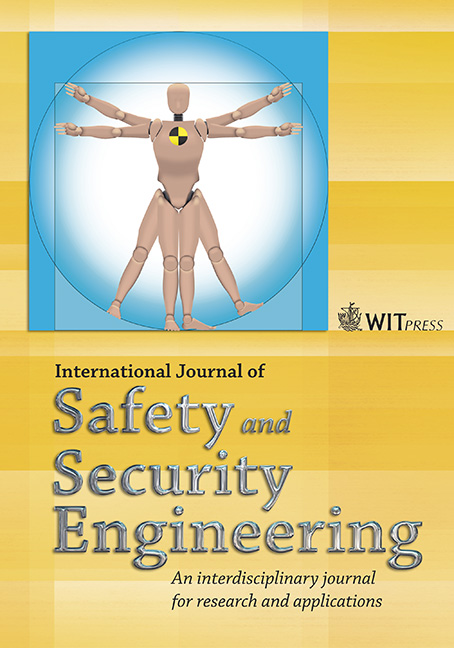FLOOD RISK PERCEPTION, COPING AND MANAGEMENT IN TWO VULNERABLE COMMUNITIES IN KUMASI, GHANA
Price
Free (open access)
Volume
Volume 6 (2016), Issue 3
Pages
11
Page Range
538 - 549
Paper DOI
10.2495/SAFE-V6-N3-538-549
Copyright
WIT Press
Author(s)
D.K. AHADZIE, I. DINYE, R.D. DINYE & D.G. PROVERBS
Abstract
Flooding has become an imminent and disruptive threat in many cities around the world. In developing/emerging economies, cities are often more vulnerable to the impacts of flooding. For example, in Accra, Ghana, recently over 150 people perished in a flash flood. The high casualty rate was a consequence of the lack of a well-developed integrated flood risk management plan and exacerbated by weak institutions, slums, urban sprawl and informal land / property management. To this effect, high risk countries like Ghana are in need of urgent development of systematic mitigation measures to engender community resilience (CS). Using the combined qualitative technique of Phenomenological Studies (PS) and Focus Group Discussions (FGDs), the flood risk perception, coping and management strategies of two vulnerable communities in the second largest city of Ghana, Kumasi are examined and evaluated for evidence of a sense of community resilience through social responsibility. The findings suggest that the two urban communities are aware they are at high risk to flooding and live in a constant state of anxiety during the wet seasons. However, there is no evidence of any systematic coping and management strategies and the communities feel there is nothing they can do without government support. It is suggested that government should use the leverage of local government practices to help engender a stronger sense of community empowerment and involvement towards building resilient communities that can respond to flooding through perceptions, social responsibility and appropriate public relation models.
Keywords
community resilience, coping strategies, flood management, flood risks, Ghana, Kkumasi, social responsibility




